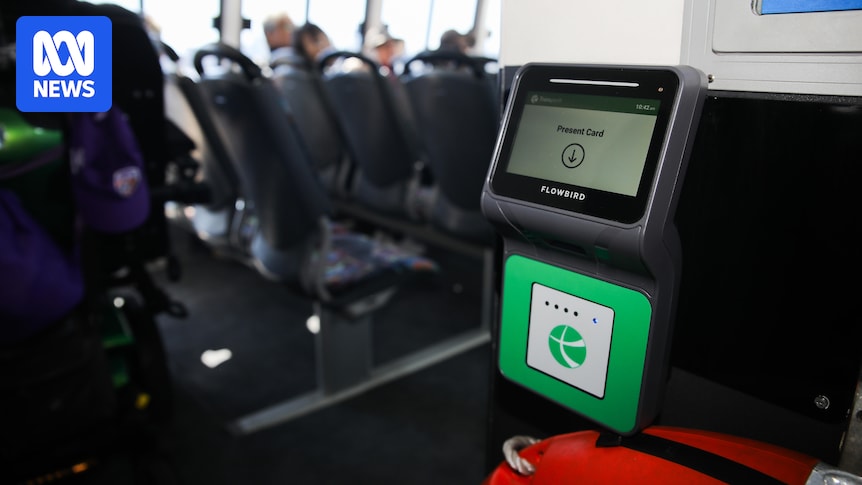Perth public transport users will be able to use their phones and bank cards to pay for tickets by the end of the year, Transport Minister Rita Saffitoti says, after extensive delays in getting the new technology online.
The project is more than a year behind schedule and Ms Saffioti revealed today it was more than $10 million over budget.
The ticketing overhaul, being trialled on Swan River ferries initially, will let people tap their phones and bank cards to pay bus, train and ferry fares.
Ms Saffioti said 50 regular ferry users were being sought for a four-week trial of the new technology.
“Should it be successful, we’ll move to the next one, which will be 150 regular users of public transport across the buses and trains, and that’ll be another four weeks with the target of having it rolled out and used for the general public by the end of the year,” she said.
Rita Saffioti made the announcement in South Perth on Thursday. (ABC News: Keane Bourke)
“This is about making sure there’s no reason people don’t jump on public transport.”Behind schedule, $10m over budget
In late 2023, the government announced the modernisation of the SmartRider system, which was meant to have been completed by mid-2024 at a cost of $58 million.
Earlier this year, delays to the project were blamed on “technical and resource challenges”.
Project to modernise SmartRiders delayed
Ms Saffioti said some of the delays had been due to supply chain interruptions caused by COVID and other global pressures.
“It’s a big project and around 4,100 readers have been rolled out across the ferry system, the buses, the train stations and of course our trains as well,” she said.
Ms Saffioti said today the cost of the project had blown out to around $68 million.
SmartRider to remain for now
Ms Saffioti said she expected the new technology would initially be used by tourists and those who found themselves without cash.
She said the existing SmartRider system, which allows users to access concession fares, would remain for now.
The WA government’s plans to upgrade the SmartRider system have suffered delays. (ABC News: Keane Bourke)
“Currently, 84 per cent of trips are SmartRider trips,” she said.
“Even in other states where they have credit card payments, for concessions — for example — they still have … the equivalent to SmartRiders.
“But … as we progress we’ll see what happens with the SmartRider over the longer term.”
Ms Saffioti said it had still not been decided whether the entire public network system would go cashless.
“I think the reality nowadays is that most of the public do have interactions which are cashless and there’s many businesses and services that are cashless,” she said.
Traditional cash ticket machines will remain in operation. (ABC News: Keane Bourke)
“No final decision’s been made but these are the types of final engagements we’ll have prior to setting the actual date of the full rollout.”
Project good value: PTA
In June, a report from Auditor-General Caroline Spencer identified the SmartRider upgrade project as one of 10 major IT projects which had blown out in cost and time.
The report called for better transparency, highlighting that information on the status and cost of the projects was not readily available to the taxpayer.
Public transport slashed to $2.80 flat fee under re-elected Labor government
In response, the PTA blamed the cost blowout on the Metronet program which expanded the urban rail network.
“The SmartRider system upgrade is being completed at approximately 5 per cent the cost of a similar upgrade project underway in Melbourne,” the PTA said.
“Therefore, these projects clearly represent good value for money for the state of Western Australia.”
Ms Saffioti said investing in public transport could have positive impacts beyond its users.
A new tag on machine on board a ferry on the Swan River. (ABC News: Keane Bourke)
“When you invest in that public transport, people will use it,” she said.
“We’ve seen it interstate, we’ve seen it overseas. It’s great for people using the system. It’s affordable, it’s accessible.
“And it’s great for those who drive because there’s less cars on the road. So it’s a win for the entire community.”
Loading

